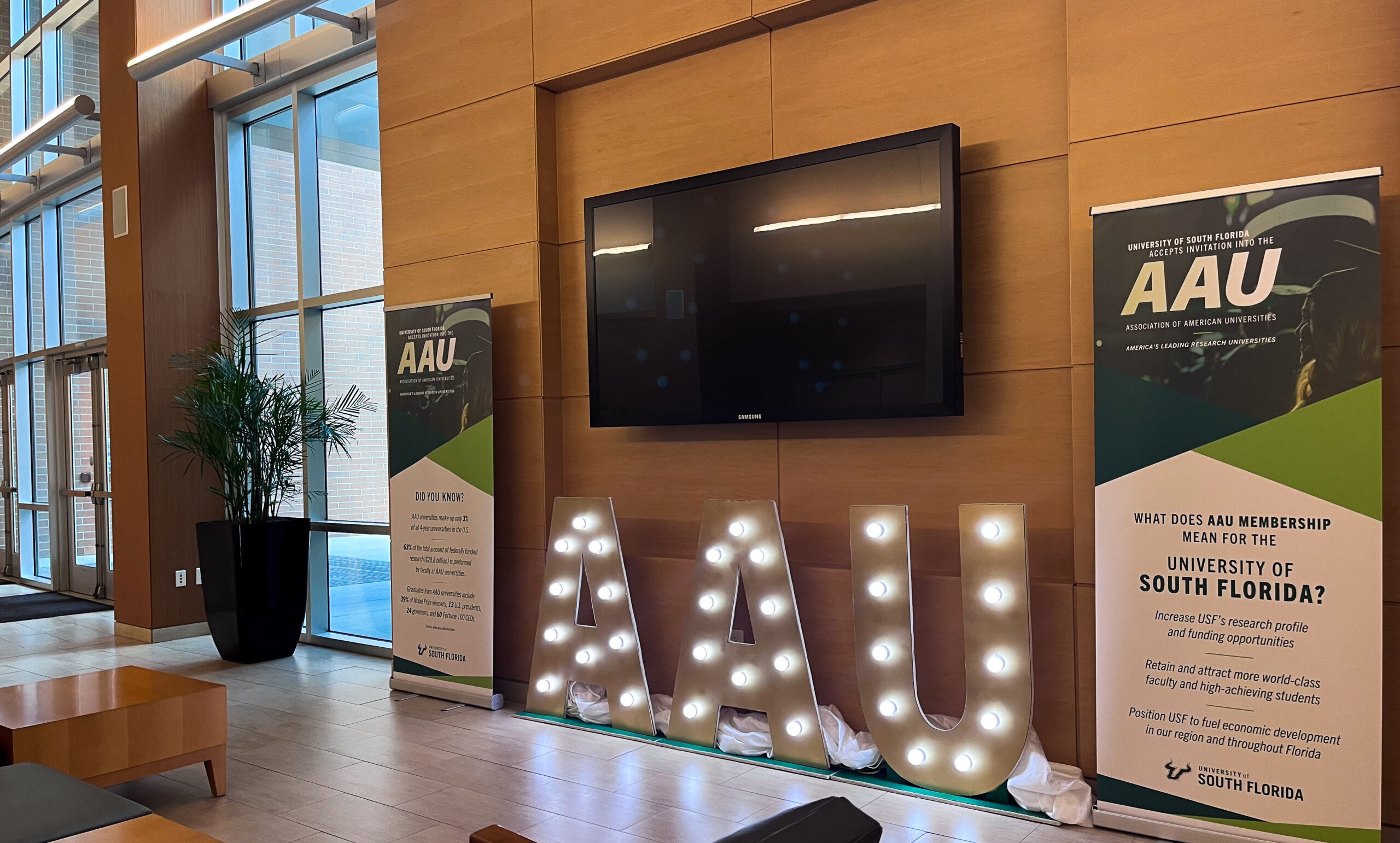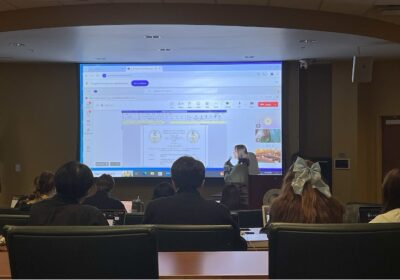Will USF’s AAU status help staffing issues? Faculty and administration weigh in

As USF accepted the invitation to join the Association of American Universities (AAU) on June 1, faculty expressed worries that the newly achieved status won’t be enough to bring professors to Florida after extensive legislative changes in higher education.
An AAU invitation is decided on performance metrics such as graduates’ collaboration to economic growth and academic article citations. The association recognizes the top research universities in the U.S. and provides them with opportunities for higher federal funding. AAU currently comprises 71 universities, with USF being one of three Florida universities on the list.
While the AAU status puts USF in a good position for those seeking their doctorate degrees, College of Education professor William Lang said depending on a potential hire’s beliefs, race or sexuality, Florida is not attractive compared to other states.
State university courses that involve critical race theory and women and gender studies will be directly affected by changes in legislation. Restriction in DEI initiatives, limited by Senate Bill 266 to be implemented July 1, will also affect how researchers apply for federal grants, Lang said.
“Just pick a federal source. Almost always they have minimum requirements for things such as diversity, equal opportunity, inclusion and it often requires faculty to be tenured in order to receive grants,” Lang said.
Provost Prasant Mohapatra said the faculty’s concern with hiring issues and limitations in their academic freedom at USF have been “loud and clear,” but having the “AAU card” could help attract new faculty.
“We are still having retention challenges. Some faculty are moving and they are citing recent legislative changes,” Mohapatra said. “We were more concerned before the announcement of AAU on the impact on recruitment.”
The U.S. Office of Science (SC), responsible for federal research grants, has instituted the Promoting Inclusive and Equitable Research (PIER) plan. The grants require applicants to attach their own PIER plan to the appendix of their proposal, ensuring the inclusion of “groups and communities historically underrepresented in STEM fields.”
Those faculty concerns are to be addressed by administration. Mohapatra said it is in USF’s interest to ensure professors feel comfortable in Florida.
“We are trying to explain that the perceived impact of the legislative changes on our faculty will not be that high,” he said. “We will save academic freedom, we will safeguard the research activities and the inclusive environment we want to create.”
Lang said he believes the publicity in educational newsletters and papers regarding changes in how much academic freedom professors have while planning lectures puts the state of Florida at a disadvantage when hiring new faculty. The administration’s silence stems from fear, Lang said.
“Everybody is really excited, but everyone has been real quiet too,” Lang said. “They are afraid if they say something, it’s gonna be like Disney or New College, you know, we are going to be a target for the governor.”
The university’s new status in the AAU means higher expectations for faculty and students on their quality of education, Mohapatra said.
He said his main priorities are ensuring the recruitment of top quality faculty and providing USF students with good support, better academic advising and improving access to health services.
“This is near and dear to my heart,” Mohapatra said. “Focusing more on the physical as well as mental health of students, especially with mental health becoming a national crisis.”
Lang said although he believes USF hasn’t seen the impacts of Gov. Ron DeSantis’ bills restricting diversity, equity and inclusion (DEI) efforts yet, he has already gotten emails from colleagues that plan on leaving the state.
“Some of our better faculty are leaving or have left in the last year and we were not able to replace them,” Lang said. “I think even with the AAU status if people don’t want to work in Florida, this won’t be just a USF problem.”






